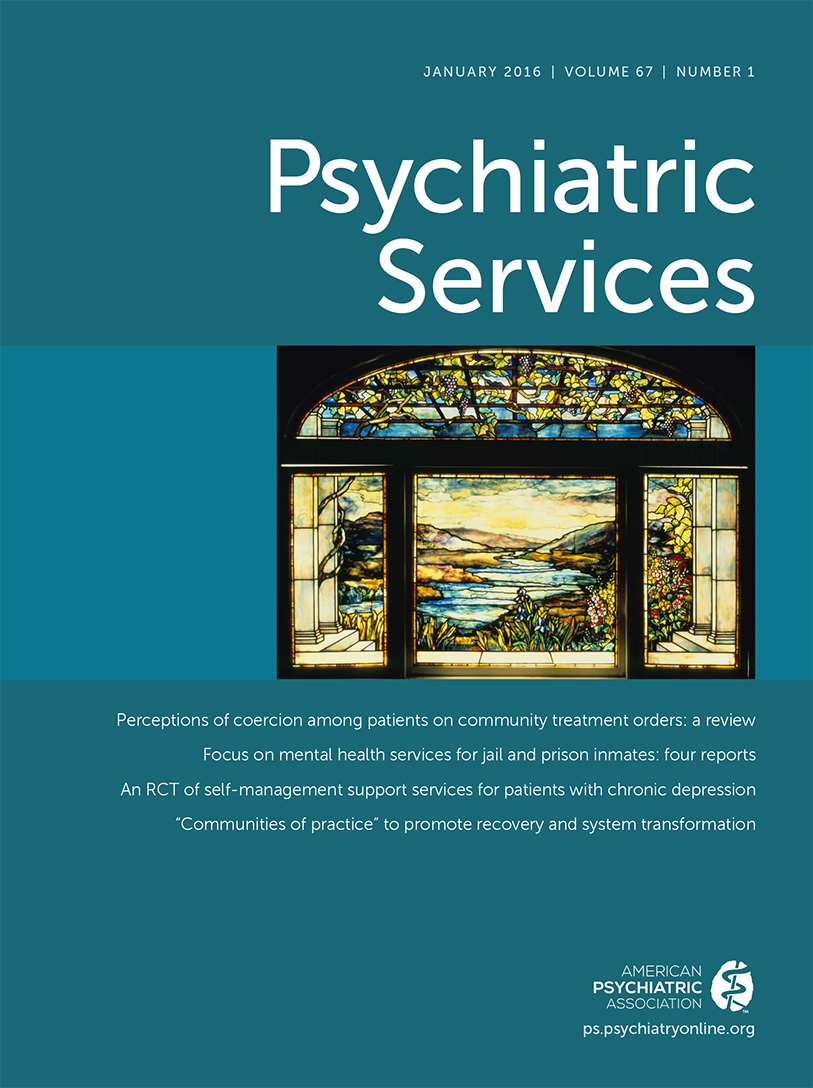Perception of Coercion Among Patients With a Psychiatric Community Treatment Order: A Literature Review
Abstract
Objective:
Various forms of compulsory psychiatric community treatment orders (CTOs) are commonly utilized internationally. CTOs remain contentious because of the ethical implications of coercing patients to receive treatment. Understanding patients’ experience of CTOs can assist in the development of more patient-centered and recovery-focused community care. This review examined the relationship between CTOs and patients’ perceptions of coercion in the literature.
Methods:
A search of key terms relating to CTOs and patients’ perceptions of coercion was conducted of relevant databases from their inception to March 31, 2014. Publications were included if they were peer reviewed, reported on original research, surveyed or interviewed patients who were or had been subject to a CTO, and were written in English. Factors influencing patients’ perceptions of coercion, including the regional context of the studies, were identified.
Results:
Twenty-three primary research articles, reporting on 14 studies from seven countries, were included. Evidence indicated that CTOs may contribute to a patient’s sense of coercion, with marked variations among studies in the levels of coercion. Contextual factors, including perceptions of alternatives to CTOs, the presence of additional forms of leverage in patients’ lives, and the process of CTO initiation and enforcement, may mitigate or enhance perceptions of coercion.
Conclusions:
Coercive elements of CTOs may be reduced through increased patient access to information, better working relationships with service providers, and accessible, fair processes. The coercive aspects of CTOs should be seen as part of a broader understanding of the daily pressures and leverage applied in outpatient psychiatric treatment.



